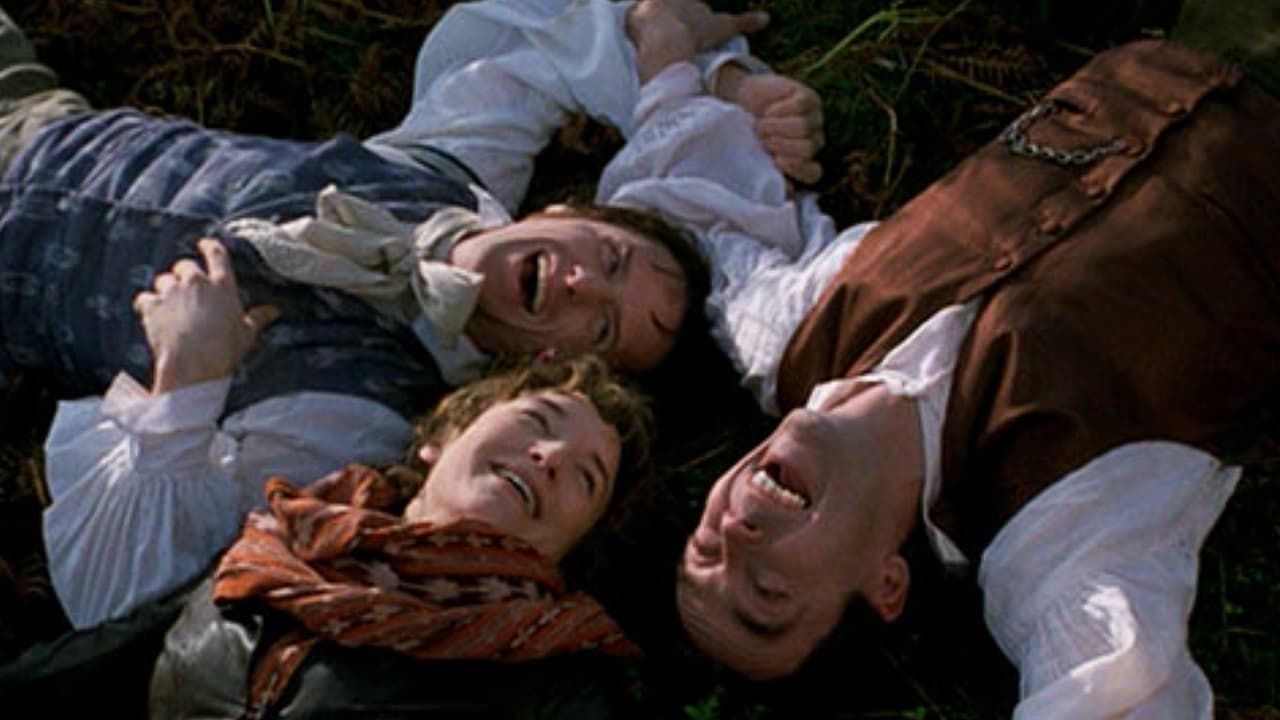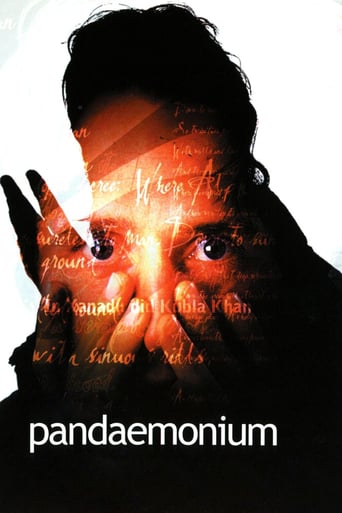YouHeart
I gave it a 7.5 out of 10
Cleveronix
A different way of telling a story
Glucedee
It's hard to see any effort in the film. There's no comedy to speak of, no real drama and, worst of all.
Ogosmith
Each character in this movie — down to the smallest one — is an individual rather than a type, prone to spontaneous changes of mood and sometimes amusing outbursts of pettiness or ill humor.
way too wired
If there's one thing I like about this film it is the very active presence of Dorothy Wordsworth! I am a big fan of both Wordsworth's and Coleridge's works and an currently studying some Wordsworth at the moment in terms of Marxist criticism and even though in Wordsworth's Tintern Abbey he mentions his sister, he does not actually give her a voice - he repressed her voice to a great extent. Collaboration has always been very common, especially in their time period, but was very rarely acknowledged - something pointed out very strongly in this film, and very correctly the film showed Dorothy assisting and advising her brother on his work. The fictional Dorothy makes some very political and arguably feminist comments in this film, she is trying to pave her way in a man's world, but in her alliance to Coleridge she loses her chance...I'm not sure how much of this film was fiction or fact but I am very pleased with the representation of Dorothy as it is about time her voice was heard.
p-r-newman
I knew some of Wordsworth's poems from reading, and a few of Coleridge by repute. This film was a very enjoyable and wonderfully acted experience from which I learned, as well as laughed and sighed. Now I want to read more of both, and return to the north-east of England again.
ladykaen
First things first: if you're watching this film to get some insight into the real lives of Samuel Taylor Coleridge or Wordsworth: don't. Most especially if you're a fan of Wordsworth, he's not portrayed too kindly. This script takes a LOT of liberties with history, to the point where it should be considered entirely fictional. That said, I thought it was a completely beautiful, exquisite movie. A fan of Coleridge, I liked hearing the poetry (though to be brutally honest, didn't care much for the actual voice/intonation used for the readings). Most especially, I loved the director's way of bringing me into the supposed head of a drug-mad poet. Was STC really like this? <shrug> Does it matter? <shrug> I found the camera work stylish, the cinematography stunning, the references to the contemporary world confusing but thought-provoking. The story was perhaps only a step up from mediocre, but the visual element so greatly surpassed my expectations that it balanced out to being one of my new favourites. So good, I watched it 2 nights in a row. And if I wasn't so busy, I'd watch it again today....
lllama
This beautifully filmed treasure was a special treat to watch, as it transported me into a different world and captured the feelings I had as a student of English literature studying Coleridge and Wordsworth. Through its artistic interpretation of the inner landscape of Coleridge's mind, it reawakened the emotions that Coleridge's poetry itself evoked. I applaud the credit it gave to the women in the lives of these two masters, particularly Dorothy Wordsworth, whose importance to the poetry itself was unrecognized in the original works and has always been underappreciated. The film really brought to life "The Rime of the Ancient Mariner," "Kubla Khan," and "Frost at Midnight."The movie was so powerful because of the beautiful filming--the sets, scenery, costumes, etc., the photographic talents that captured these, the haunting background score, and the talented acting of the cast, particularly that of Linus Roach, who displayed a variety of emotional states so wonderfully, though I was really moved by Emily Woof's acting, as well. At first it seemed to me that John Hannah was merely walking through his role, but I now feel that the subdued acting was deliberate in portraying a much more sinister Wordsworth. I also applaud Samantha Morton and Samuel West for their roles.The one odd thing about the movie was the segment shown during the final credits, in which Coleridge walks around in modern London, with dreadful popular modern music playing. I understand that a statement was being made, but it contrasted too sharply with the beauty of the film and the reverie in which I found myself. (The music was dreadful because of the contrast with the earlier context.) I really didn't need to be unkindly startled from the earlier sweet emotions. Only credit-watchers like me have to worry about it, though.

